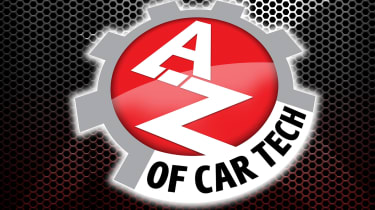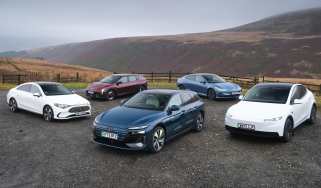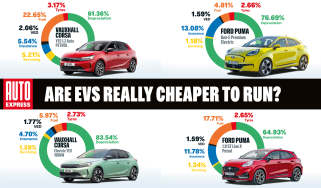A to Z of Car Tech: T is for traction control, tyres, and more
The letter T in our A to Z of car tech series looks at traction control, torque vectoring, and tyres…
The technology contained within the modern motor car can be both fascinating and slightly baffling. Most such technology exists to make our cars safer, more efficient and just better than ever to drive but some of it can be quite confusing for the average motorist. In this A to Z series we will attempt to unravel the mystery of technology that is the modern motor car. This week, we’re visiting the letter T…
T is for…traction control. Sometimes shortened simply to TC - although with most German manufacturers it’s known as ASR, referring to ‘engine slippage regulation’ – traction control systems limit an engine’s torque output and soften the throttle response when sensors detect that wheelspin is about to occur.
In extreme circumstances a traction control system will also tickle the brakes and limit the boost pressure on high-powered turbocharged cars. And as ever the whole set up depends upon electronics, the same electronics that control the anti-lock braking system, the cruise control, and so on.
T is for…torque vectoring. Not to be confused with straightforward traction control, a torque vectoring system effectively does two things. First, it varies the torque flow across the driven axle electronically whenever slip is detected on either side, much like a conventional limited slip differential.
And second, it also uses the braking system to eradicate slip by tickling the brakes when slip occurs on the unloaded inside wheel.
It gets a bit more complex than that, though, because the most sophisticated torque vectoring systems also monitor steering angle and wheel rotation speed - not just mid corner but on the way in and on the way out – to generate maximum grip whenever possible. Torque vectoring is expensive, and complex to fine tune, but the results are usually stunning when executed well.
T is for…tyres. Tyres, we all know, form the sole point of contact for a vehicle to the road. The first ever patent for a standard pneumatic tyre was granted in 1847, although prior to that tyres were made of all sorts of materials such as leather, iron or even wood on carts and wagons.
The modern road tyre is a complex animal and generally consists of a combination of synthetic rubber, natural rubber, chemical compounds, fabrics and wire.
Contemporary tyres come in many different dimensions, but all have a tread pattern and all have what’s known as a compound – which basically describes the ratio of the mixture of the above components, and tells us how stiff or soft they are.
In the simplest of terms, the tread pattern provides the basic traction of a tyre while the compound helps it develop grip, comfort and/or control.
Tyres, as they say, really are a dark art, which is why some are an awful lot more efficient than others.
Next, the letter U…



